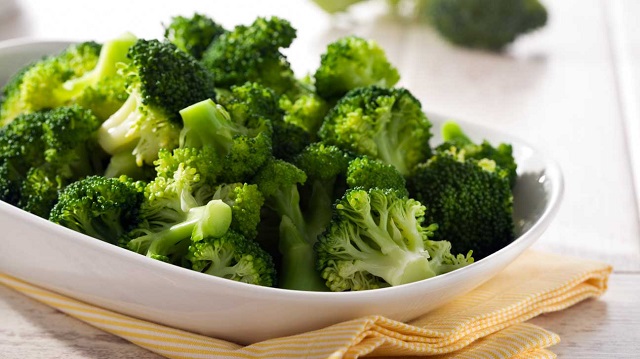3. Broccoli

Broccoli belongs to the cruciferous family of vegetables.
It is rich in a sulfur-containing plant compound known as glucosinolate, as well as sulforaphane, a by-product of glucosinolate (8).
Sulforaphane is significant in that it has been shown to have a protective effect against cancer.
In one animal study, sulforaphane was able to reduce the size and number of breast cancer cells while also blocking tumor growth in mice (9).
Eating broccoli may help prevent other types of chronic disease, too.
A 2010 animal study found that consuming broccoli sprouts could protect the heart from disease-causing oxidative stress by significantly lowering levels of oxidants (10).
In addition to its ability to prevent disease, broccoli is also loaded with nutrients.
A cup (91 grams) of raw broccoli provides 116% of your daily vitamin K needs, 135% of the daily vitamin C requirement and a good amount of folate, manganese and potassium (11).
Summary
Broccoli is a cruciferous vegetable that contains sulforaphane, a compound that may prevent cancer growth. Eating broccoli may also help reduce the risk of chronic disease by protecting against oxidative stress.